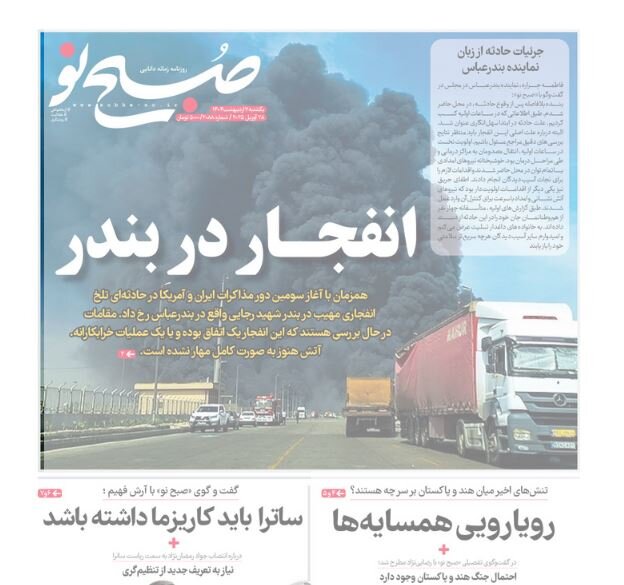Tehran – In his analysis, Sobh-e-no addresses the Zionist regime’s position on Iran-US consultations, writing:
Recent positions of the administration’s political and security authorities demonstrate the growing concerns of Tel Aviv over the revival of any agreement between Tehran and Washington. Since the initiation of indirect talks in Muscat, officials from the Zionist regime have tried to create a media atmosphere, launch intensive contact with Washington, and put pressure on European allies to disrupt or ineffective the talks. The Zionist regime has traditionally opposed the decline in tensions between Iran and the West, as they believe that continuing tensions are part of their security strategy. In the current situation, the regime’s efforts focus on disrupting the diplomatic path and expanding the threat from Iran. However, Iran’s diplomacy success and the unity of resistance in the region could defeat this devastating scenario.
Farhikhtegan: Rubio’s psychological war on the eve of technical consultations
In the memo, Fahhictegan discussed the statement of US Secretary of State Marco Rubio. Rubio said: “If Iran wants a peaceful nuclear program, instead of enrichment, rich uranium can be purchased and imported from overseas.” He has not explicitly spoken about the closure of Iran’s nuclear program, but his reference to the need to stop enrichment and import nuclear fuel is no different to the idea of shutting down Iran’s nuclear program. His statement on the eve of attending the third round of negotiations was primarily intended to manipulate public opinion in Iranian society and turn the focus of the conflict into a need for enrichment or importation. His speech could spark new controversy in the country’s political atmosphere. The US appears to be seeking Iran’s Emirati program. There are nuclear power plants in the United Arab Emirates, but they import uranium enriched for nuclear power plants and do not have a nuclear enrichment program. Pursuing this idea or accepting this state will ultimately undermine Iran’s nuclear activity.
Jam-e-Jam: Why are nuclear lectures welcomed by regional countries?
The American propaganda campaign against Iran is a campaign that if negotiations over a nuclear program were not carried out, there would be a war if it would raise a great deal of international and regional concerns. Therefore, with the initiation of negotiations, the regions, particularly the Persian Gulf countries, welcomed them as these negotiations could prevent the outbreak of war. The reason for this is because these countries believed negotiations could bring peace to the region. This time, the negotiation atmosphere seems to be better than the JCPOA talk. There is more empathy in this regard, and everyone admits that the JCPOA format failed because the West refused to fulfill its commitment. Therefore, the new form is expected to have a successful ending. The success of this process depends on negotiations pursued by better prospects and those who are fulfilling their obligations. Now, the atmosphere of consultation is favorable and it is expected that an agreement will ultimately be reached for the benefit of the economic well-being of the people in the Islamic Republic. At the same time, we should not take one path to solving national problems. Various paths should be active, including the current process of negotiation being pursued.
Siasat-e-Rooz: Interactions that must be seen
Siasat-e-Rooz dedicated an editorial to a meeting with Iranian and Russian officials in Moscow before the start of the third round of negotiations. The paper states: One day before the start of the third round of negotiations, a very important economic migration step was taken, which could be called a practical measure to neutralize the sanctions. According to published reports, the results of the conference were agreements to expand trade between the two countries, increase technical and scientific cooperation, build a new nuclear power plant in Iran, and transport Russian gas land to Iran. Iran and Russia have always emphasized that they will not succumb to pressure, strive to meet each other’s needs through capacity building internally, on both sides and regions, and adopt a unified approach to sanctions. The aforementioned conference is a practical aspect of this unified approach, and this certainly has many implications in the face of global multilateralism and destructive unilateralism in the West. The founders of the New World Order and confronting the unilateralism of America, such as Iran, China, and Russia, have the necessary will to develop comprehensive relationships, confront the obstruction and excesses of the hegemony system, and can form new structures of the international system through interaction and convergence, ensuring common interests.

